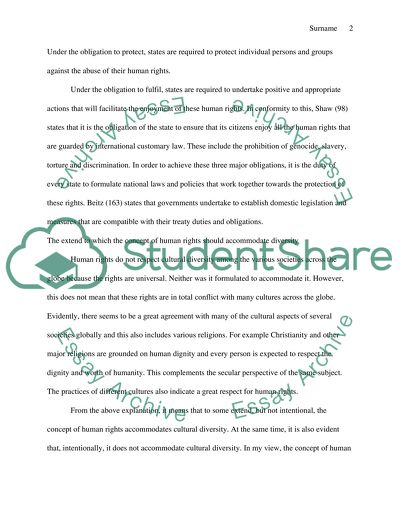Cite this document
(“What are the obligations of states regarding international human Assignment”, n.d.)
What are the obligations of states regarding international human Assignment. Retrieved from https://studentshare.org/law/1584523-what-are-the-obligations-of-states-regarding-international-human-rights-and-to-what-extent-can-or-should-the-concept-of-human-rights-accommodate-diversity-and-what-difficulties-do-you-see-with-such-an-approach-to-human-rights
What are the obligations of states regarding international human Assignment. Retrieved from https://studentshare.org/law/1584523-what-are-the-obligations-of-states-regarding-international-human-rights-and-to-what-extent-can-or-should-the-concept-of-human-rights-accommodate-diversity-and-what-difficulties-do-you-see-with-such-an-approach-to-human-rights
(What Are the Obligations of States Regarding International Human Assignment)
What Are the Obligations of States Regarding International Human Assignment. https://studentshare.org/law/1584523-what-are-the-obligations-of-states-regarding-international-human-rights-and-to-what-extent-can-or-should-the-concept-of-human-rights-accommodate-diversity-and-what-difficulties-do-you-see-with-such-an-approach-to-human-rights.
What Are the Obligations of States Regarding International Human Assignment. https://studentshare.org/law/1584523-what-are-the-obligations-of-states-regarding-international-human-rights-and-to-what-extent-can-or-should-the-concept-of-human-rights-accommodate-diversity-and-what-difficulties-do-you-see-with-such-an-approach-to-human-rights.
“What Are the Obligations of States Regarding International Human Assignment”, n.d. https://studentshare.org/law/1584523-what-are-the-obligations-of-states-regarding-international-human-rights-and-to-what-extent-can-or-should-the-concept-of-human-rights-accommodate-diversity-and-what-difficulties-do-you-see-with-such-an-approach-to-human-rights.


